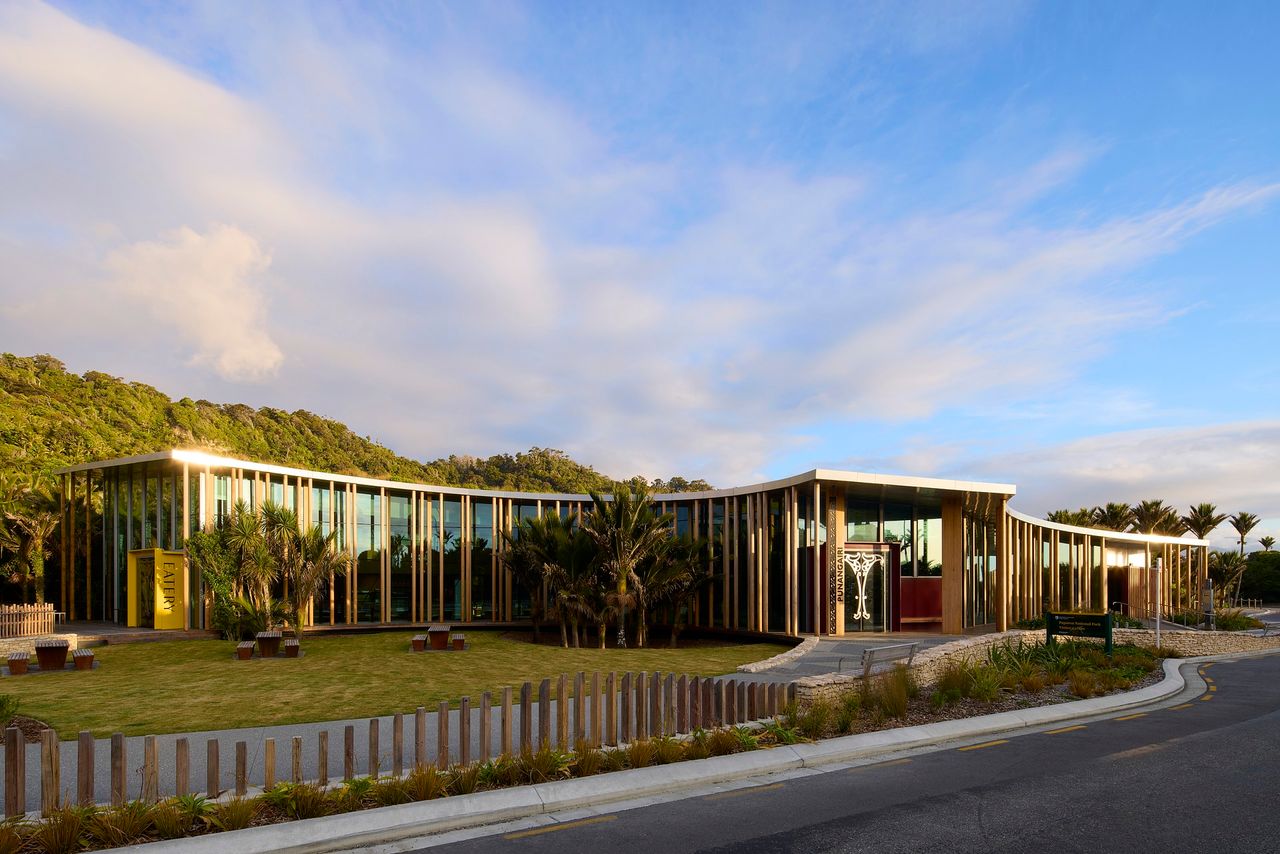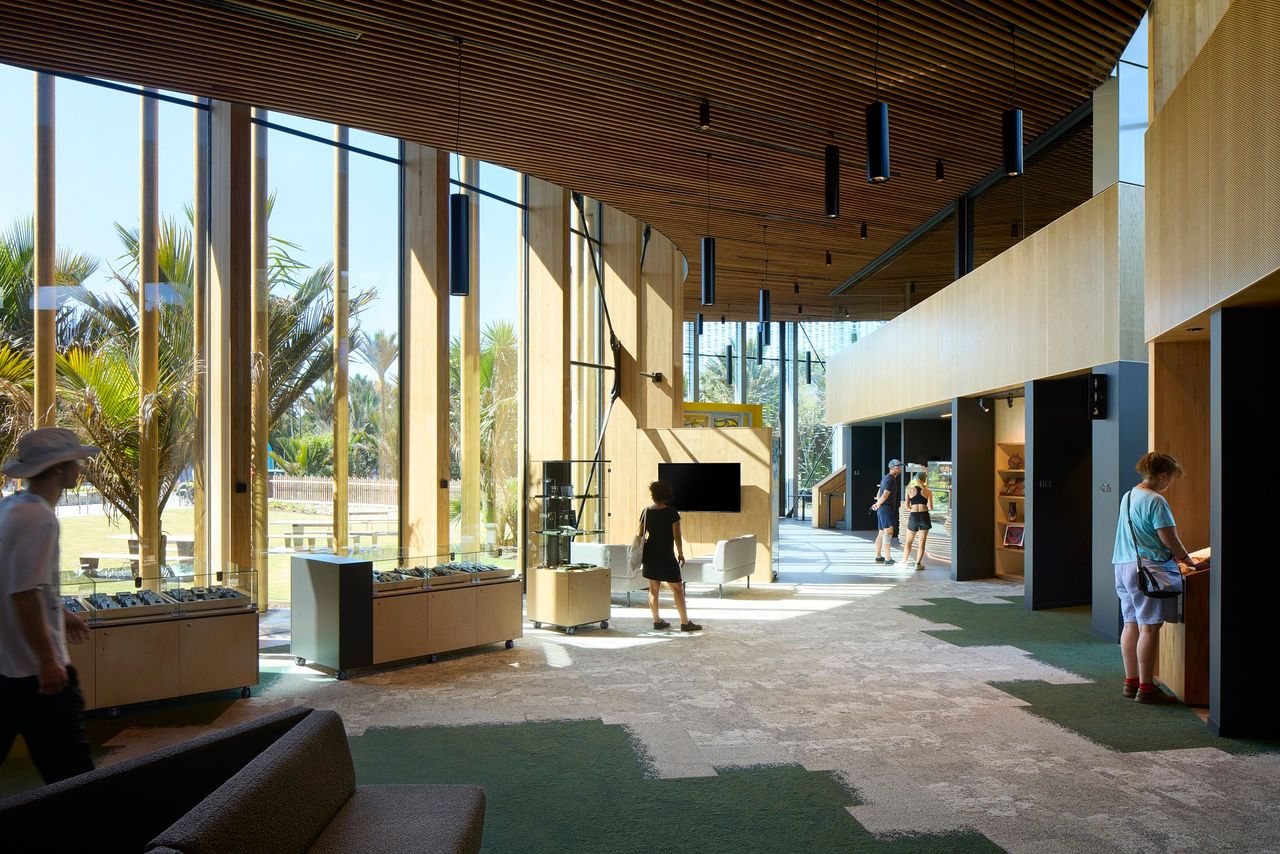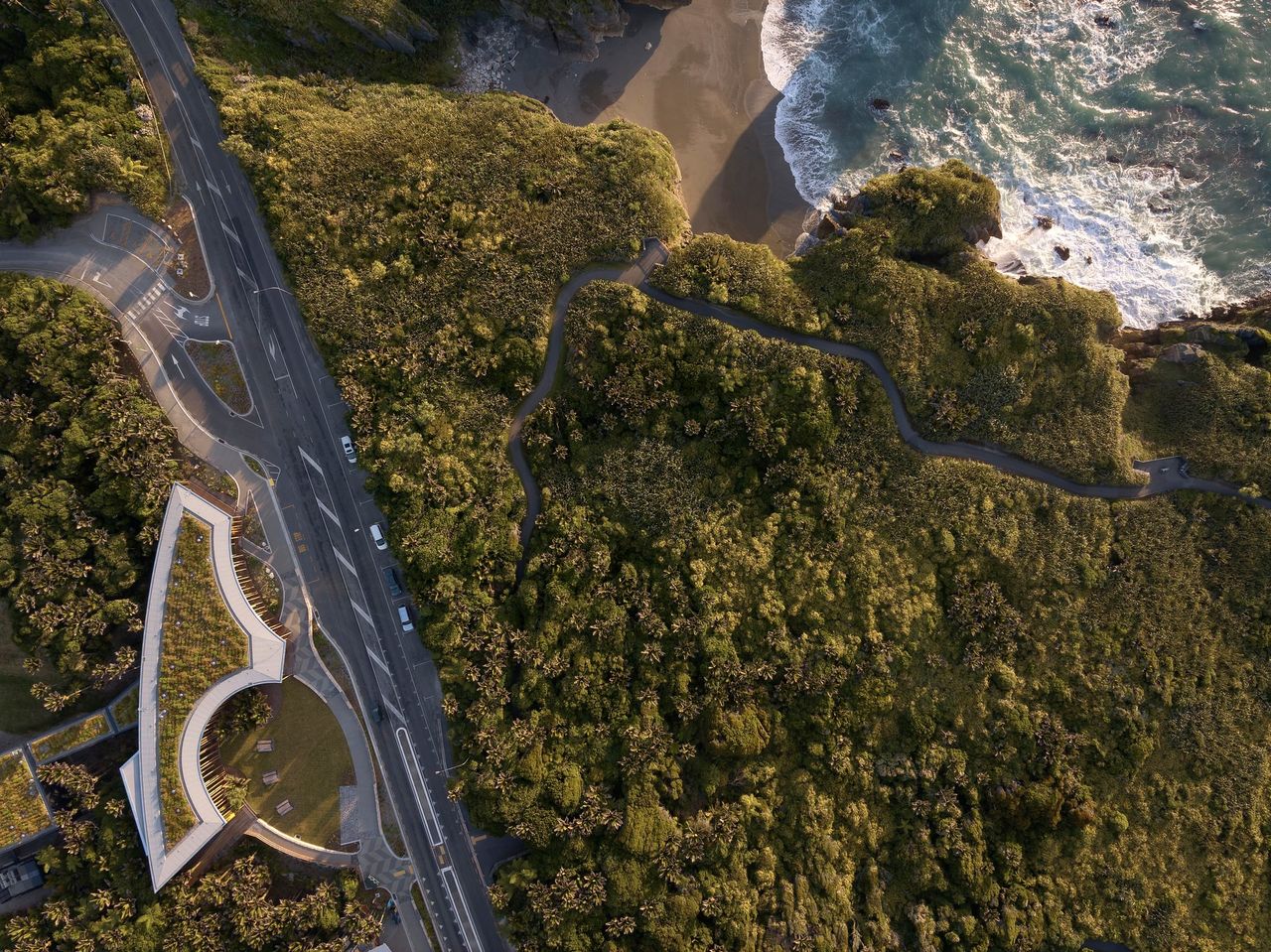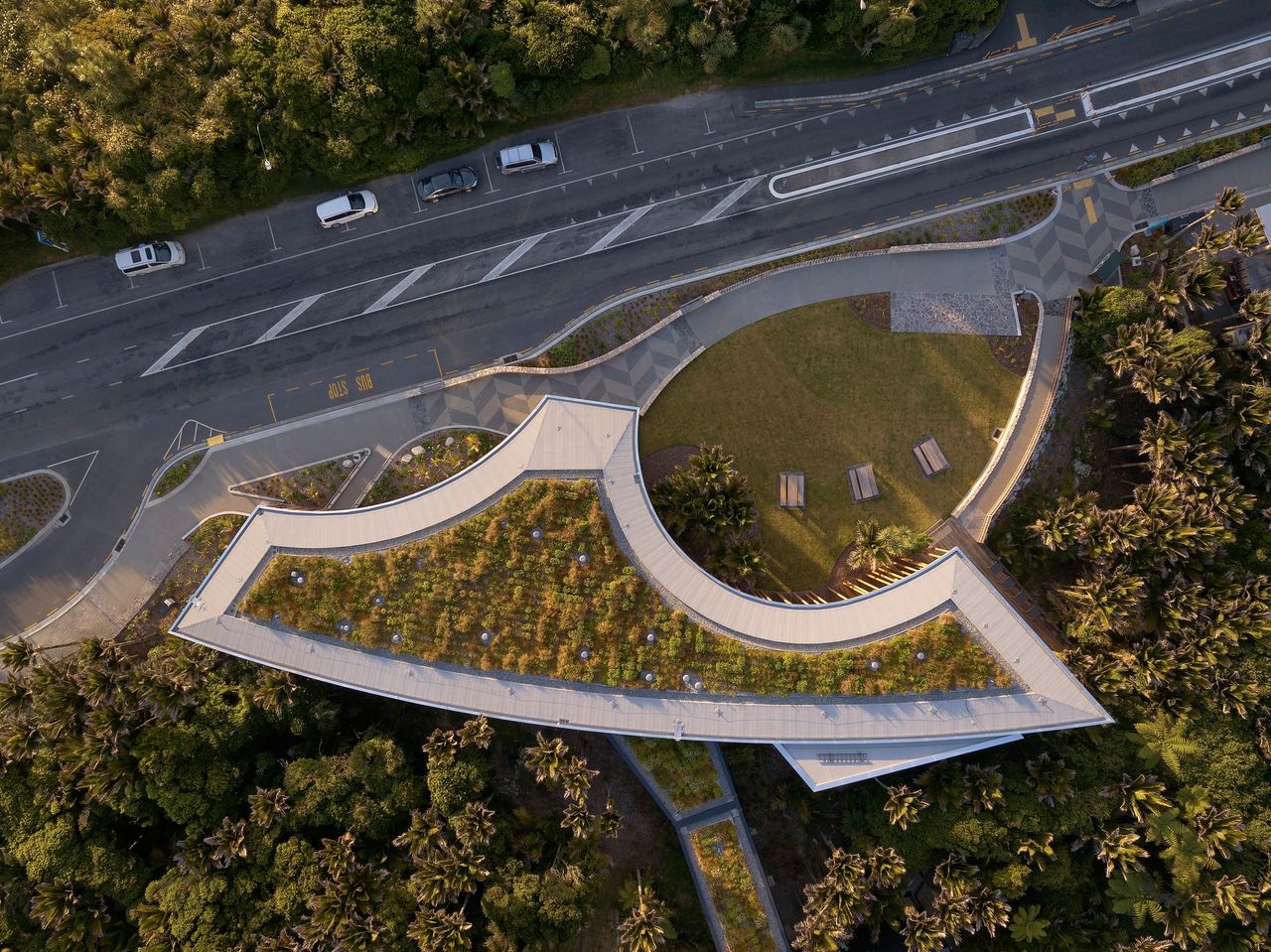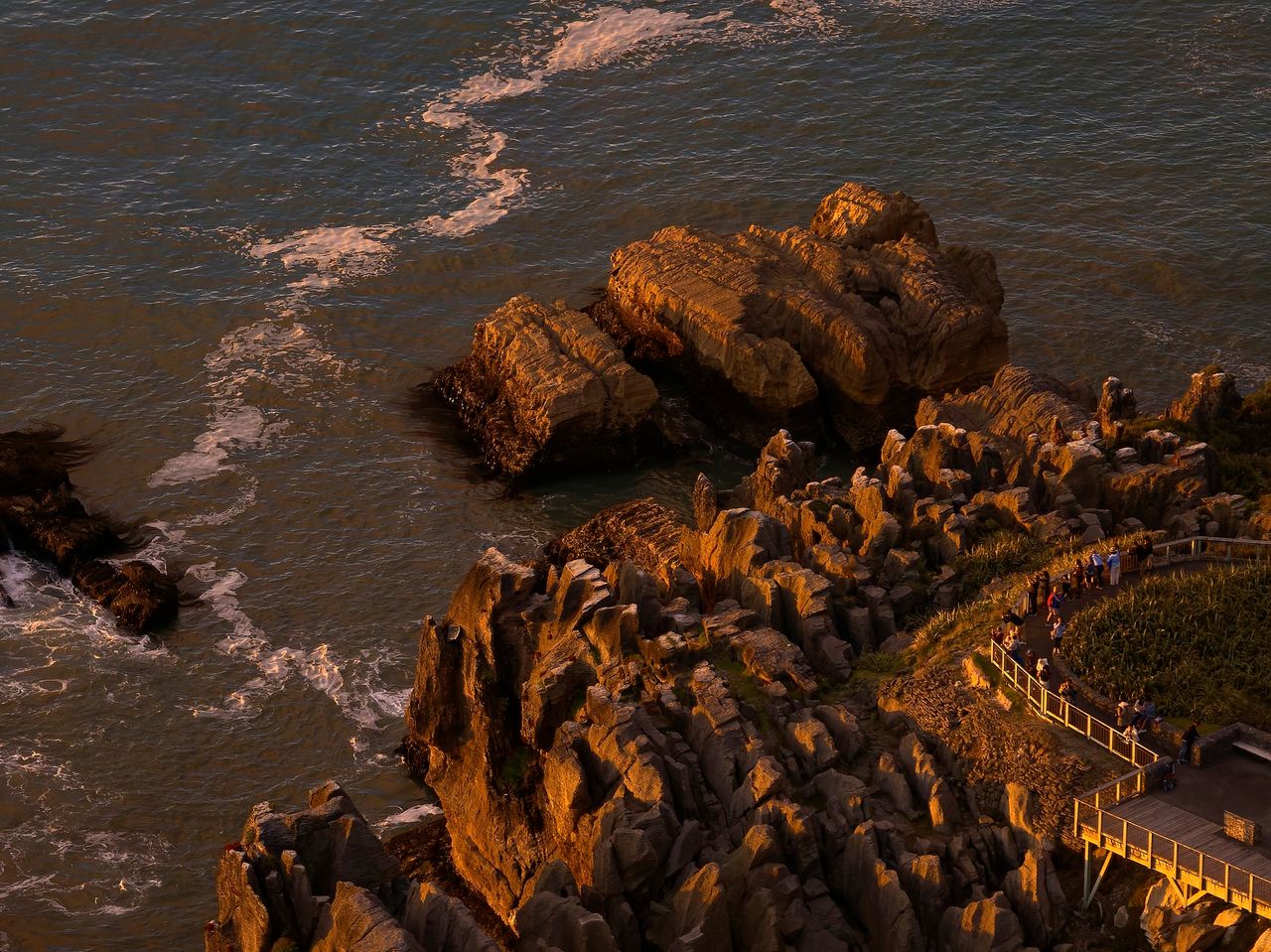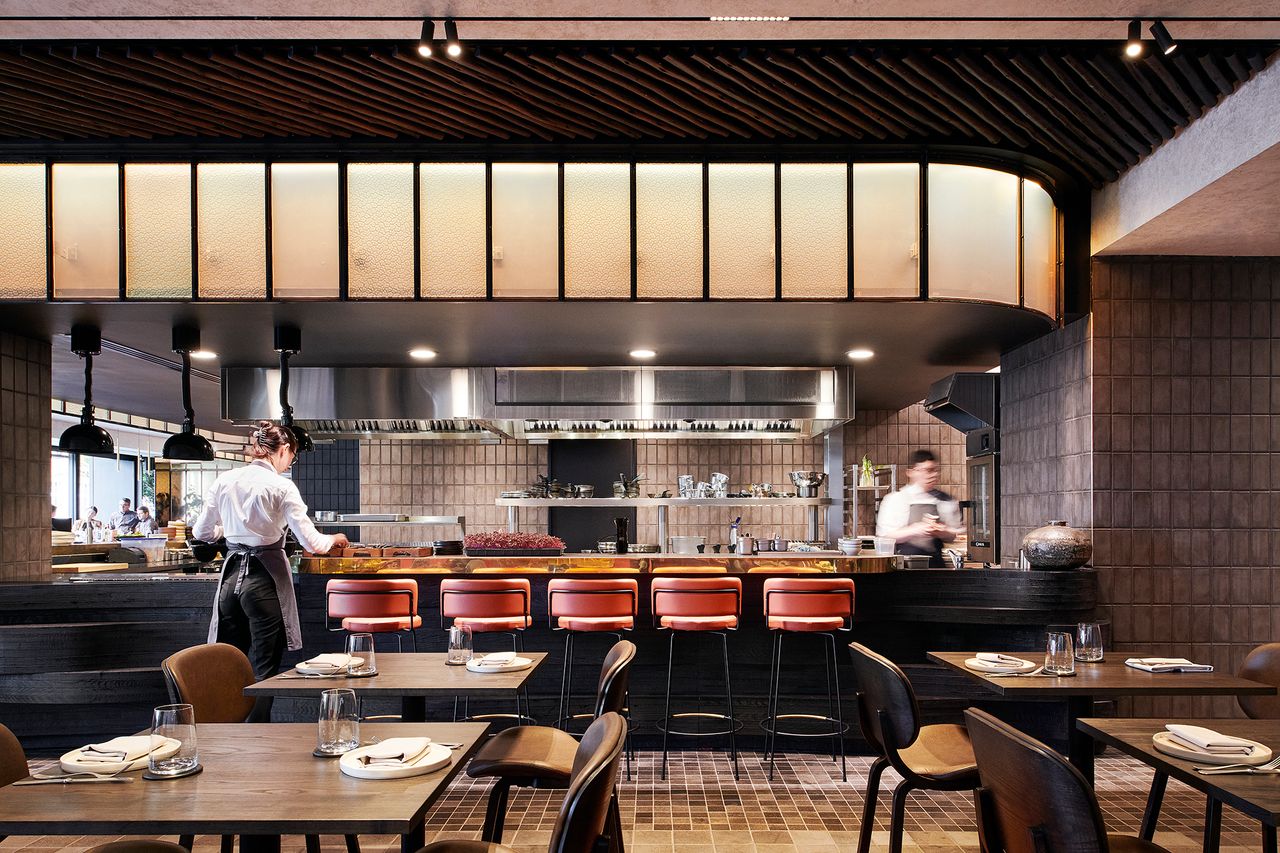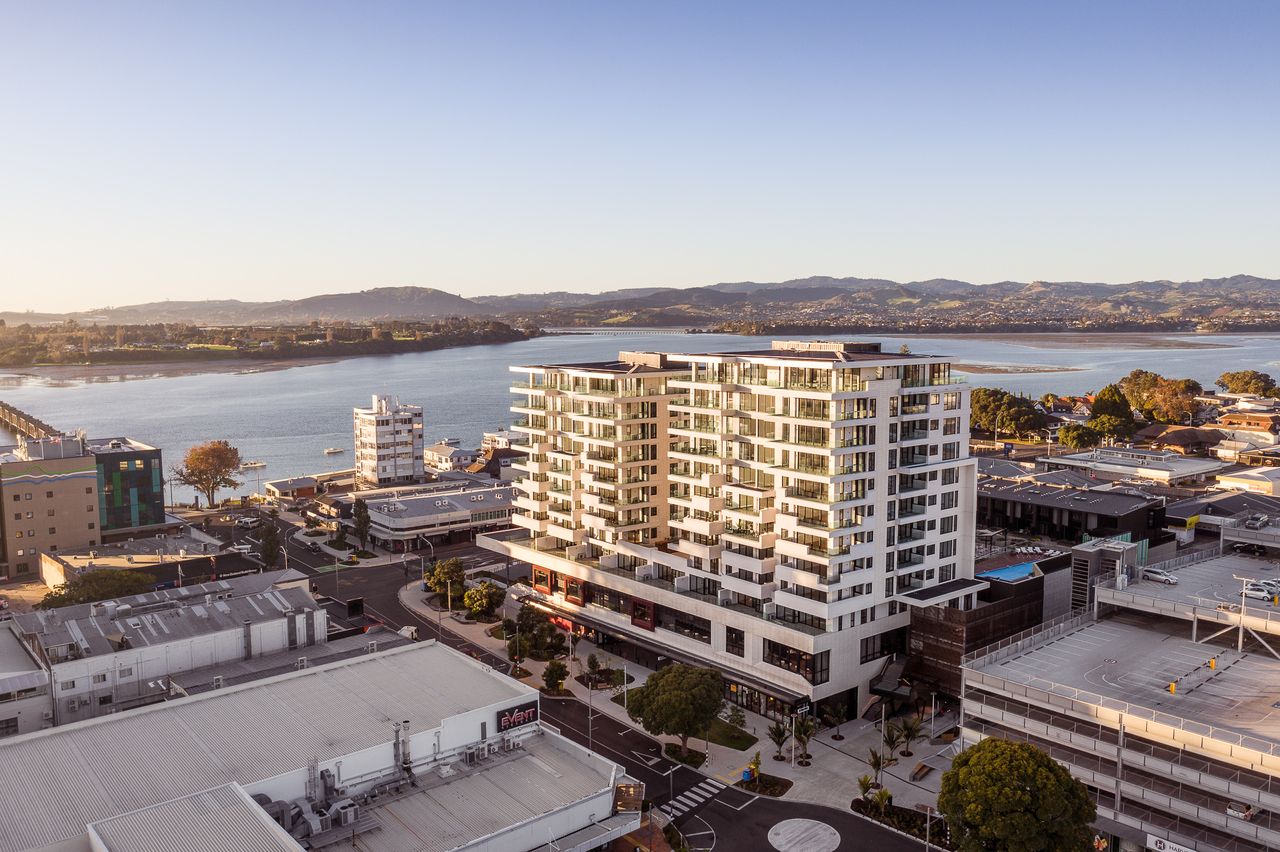Projects
Dolomite Point
Client
- Department of Conservation
Sector
Location
- Canterbury – West Coast
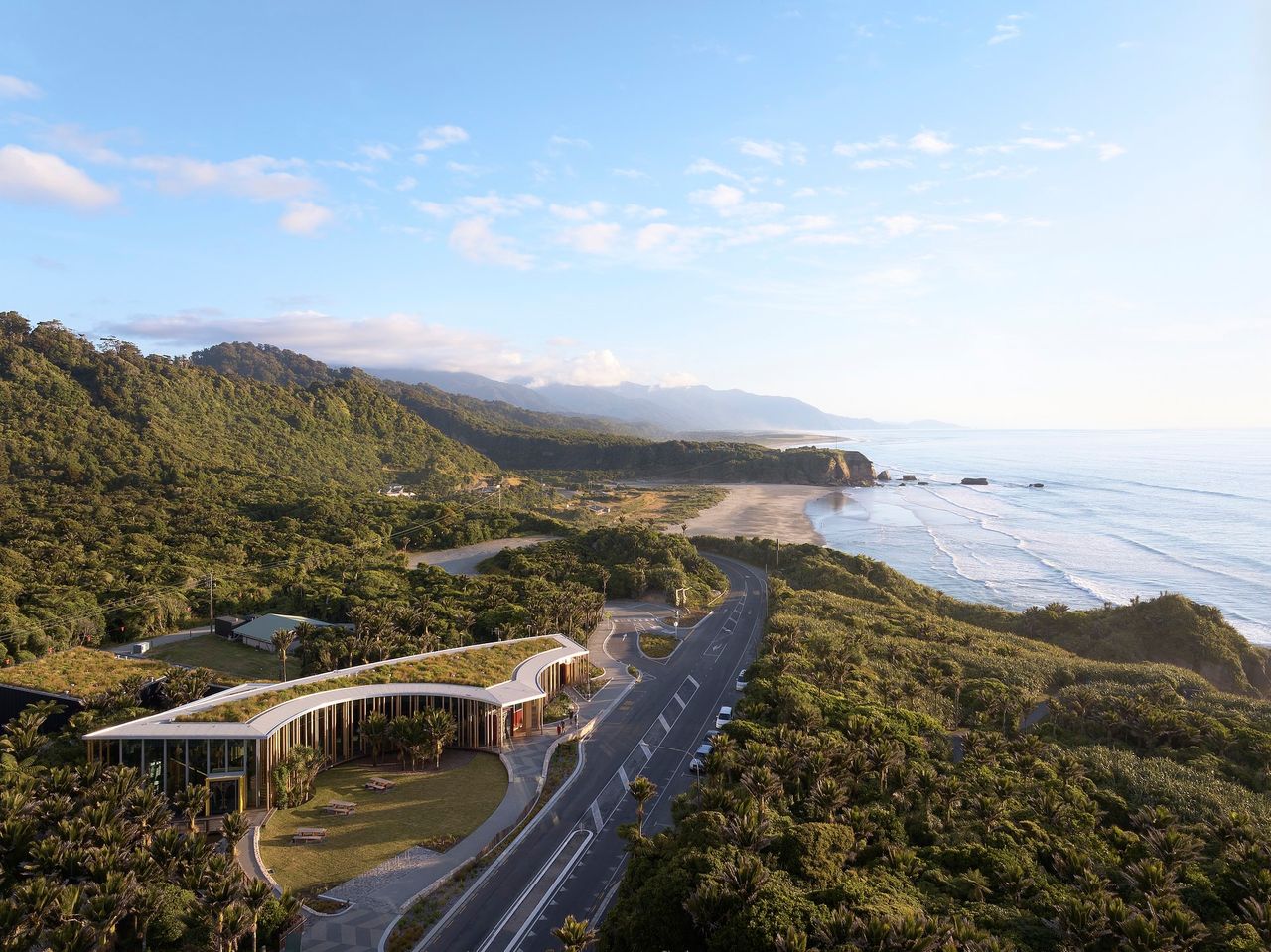
Nestled along the rugged West Coast of New Zealand, Dolomite Point in Punakaiki is home to the iconic Pancake Rocks and blowholes, drawing hundreds of thousands of annual visitors. Yet, for years, it was a fleeting stop on their journey—45 minutes to marvel at the scenery before moving on. The Dolomite Point Redevelopment Project (DPRP) set out to change that.
Led by the Department of Conservation (DOC), the project sought to create an experience as remarkable as the landscape itself. By upgrading facilities, improving access, and integrating the rich cultural heritage of Ngāti Waewae, the redevelopment has transformed Dolomite Point into a destination where visitors linger, immerse, learn, and connect.
A Vision Rooted in the Environment
Redevelopment of the old visitor facilities was about much more than a building—it was about seamlessly integrating infrastructure into one of New Zealand’s most sensitive and breathtaking landscapes. At its heart, the project aimed to transform Dolomite Point from a brief stop into a vibrant destination, encouraging longer visitor stays and supporting economic growth in the region.The project also included major parking, pedestrian, and highway safety improvements, water and power upgrades, pedestrian and cycle pathways, landscaping, and a stunning new multi-media visitor exhibition, the ‘Paparoa Experience’. Just as crucially, the redevelopment sought to establish a cultural footprint for Ngāti Waewae, with the new Punangairi Visitor Experience Centre at its core.
Perched near the dramatic limestone cliffs, the new Experience Centre – ‘Punangairi’ - reflects a conversation with the land it inhabits. Its design, inspired by the natural and cultural heritage of the region, features a green roof planted with native vegetation, blending harmoniously with its surroundings and successfully balancing development with preservation. Visitors now have more than a reason to linger—they have a chance to immerse themselves in the natural beauty and cultural stories of Punakaiki.
A Project Like No Other
Bringing this vision to life was no small feat. Dolomite Point is as challenging as it is beautiful. Harsh coastal weather, sensitive ecosystems, and the logistics of a remote location all demanded careful planning and innovative solutions.
From the very beginning, sustainability was central. Punangairi’s low carbon design incorporates sustainably sourced timber, while its living roof slows rainwater runoff and supports local biodiversity. Every detail, from the connection to the Nikau palms to the controlled lighting that protects nocturnal wildlife, was crafted with the environment in mind.
But a key element that truly sets the project apart is its cultural integration. Working closely with Ngāti Waewae, the redevelopment honours the stories of the land and its people. Punangairi, owned and operated by iwi, features curated artwork and design elements that speak to their history and heritage, creating a space where visitors can connect with the past while enjoying the present.
The project was also a collaboration with the community and fostered local employment and upskilling opportunities where possible, with prefabrication techniques enabling efficient construction in a challenging environment.
RCP: Navigating Complexity with Precision
For a project of this scale and sensitivity, expert contract management was essential. RCP played a critical role in steering the redevelopment from concept to completion, ensuring that every phase aligned with the project’s ambitious goals.
As Engineer to Contract, Engineer’s Representative, and Contract Administrator, RCP managed the complexities of construction, design, and procurement. Early on, RCP helped refine the design to protect the environment, avoiding plans that would have removed native Nikau trees or disrupted sinkholes. Prefabrication techniques were employed to streamline construction, allowing much of the building to be assembled locally, reducing both costs and environmental impact.
The remote location and coastal conditions posed unique challenges. To withstand the elements, materials were carefully selected, from the green roof to the timber treated for durability. Meanwhile, a phased approach to construction allowed visitor operations to continue seamlessly as the new facilities took shape.
Challenges and Solutions: Resilience in Action
Every project has hurdles, but Dolomite Point’s presented a unique blend of environmental, logistical, and economic challenges. The global Covid pandemic, coupled with inflation and supply chain disruptions, tested budgets and timelines. Yet RCP’s proactive approach and contribution to early material procurement, value engineering, and close relationship and collaboration with the DOC project lead—kept the project on track.
Even the discovery of asbestos during demolition of the old Visitor Centre and complexities with final landscaping details were managed with care, ensuring delays were minimised without compromising quality.
Creating a Lasting Legacy
Today, the Dolomite Point Redevelopment stands as a testament to what’s possible when vision, expertise, and collaboration come together. Visitors now enjoy enhanced facilities that not only improve their experience but also honour the land’s stories and protect its delicate ecosystems.
The project has breathed new life into Punakaiki, supporting the local economy while setting a benchmark for sustainable and culturally integrated development. And at the heart of it all is Ngāti Waewae, whose ownership of the Experience Centre ensures that their voice and heritage remain central to Dolomite Point’s story, as well as creating important opportunities for their people.
From the rugged coastlines to the vibrant green roof, the Punangairi Visitor Experience Centre is a place where nature, culture, and innovation meet, a legacy for generations to come.
The transformed centre and exhibition building held its official opening on 29 November, 2024.
